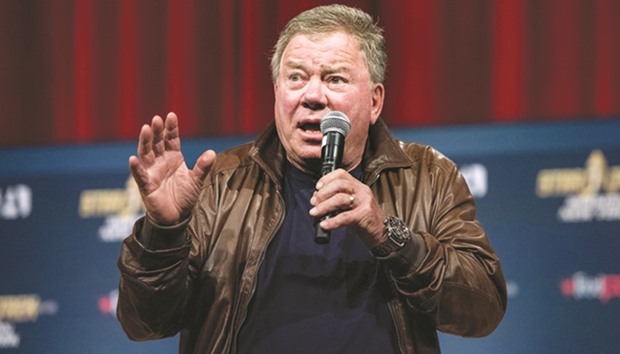The mission “to boldly go where no man has gone before” initially failed to impress the critics, but Star Trek, the enduring sci-fi series that made the crew of the Starship Enterprise famous, turns 50 on Thursday.
“It won’t work,” Variety said of NBC’s new series at its launch on September 8, 1966.
The US broadcaster’s show “was an incredible and dreary mess of confusion and complexities,” the influential magazine’s critic opined.
NBC pulled the series in February 1969 after 79 episodes, citing poor audience figures, but global interest in space soared after the first moon landing in July that same year and further incarnations of Star Trek followed.
Over the years the original Star Trek series gathered fans by being aired internationally and through repeats in the United States.
The first full-length feature film followed in 1979, although its reception by critics was at best lukewarm.
But today, after six television series with more than 700 episodes and more than a dozen films, Star Trek is a dazzling international success story with a cult following.
Its fans love the universe it conjures up, optimistically revealing a better future society.
At the height of the Cold War, Captain James T Kirk operated in an atmosphere of trust with his Russian navigator Pavel Chekov.
Amid the racial tensions in the US of the 1960s, African-American actress Nichelle Nichols was given the role of Lieutenant Uhura, the communications officer.
The episode in which Kirk kissed Uhura was not broadcast in some southern states in the US.
“That was so funny,” Nichols said in an interview years later.
“I didn’t think of it as the first inter-racial kiss. I just got the script, and I said Oh, wow, great! We’re going to get a little romance in here!”
Japanese-American George Takei played Sulu, her colleague and the helmsman of the Enterprise at a time when wartime memories were still strong.
The series also took on topical issues, such as exploitation of the environment and class differences.
Star Trek was set well in the future.
“But at its best it dealt with issues of the time,” William Shatner, who played Kirk, told the newspaper USA Today in an interview to mark the 50th anniversary.
He highlighted the way the series dealt with the idea of people, nations and planets working together.
Shatner was also fascinated by the technical aspects, saying they often accurately predicted later developments. For example, the “communicators” are clearly reminiscent of smartphones.
Star Trek: The Next Generation, which aired from 1987 to 1994, had devices like today’s tablets.
Being “transported” by being “beamed up” remains in the realm of sci-fi, but the idea is scientifically based and may yet become reality.
Star Trek’s optimism could be seen as a counterbalance to the gloomier Star Wars that first appeared in 1977.
Creator Gene Roddenbury had pacifist leanings, his son Rod says in the “50 Years of Star Trek” documentary recently broadcast on the History Channel.
As a bomber pilot in World War II and later policeman, Roddenberry had seen the best and worst in humanity, “but I think that really helped shape his view of Star Trek in that better future,” he said.
Roddenberry, who died in 1991, had expressed the wish for his remains to be sent into space, and in 1997 some of his ashes were launched into orbit in one of the first such funerals.
The years have taken their toll on the cast.
Leonard Nimoy — Mr Spock, the science officer on the Enterprise — died last year, while Anton Yelchin, who played Pavel Chekov in later Star Trek films, died in June.
But the “Trekkie” cult lives on.
J J Abrams, the director who rebooted the Star Trek film franchise in 2009, is planning another one.
And a seventh series — Star Trek: Discovery — is due for an online streaming premiere in January.
But Shatner remains dissatisfied with his declamation of the famous opening words: “Space. The final frontier. These are the voyages of the Starship Enterprise.”
“I never quite got it right for my ear. Good enough, I suppose, for the people listening. But I wish I could do that again,” he told USA Today.

Actor William Shatner speaks at the ‘Star Trek: Mission New York’ event at the Javits Center in New York City.
